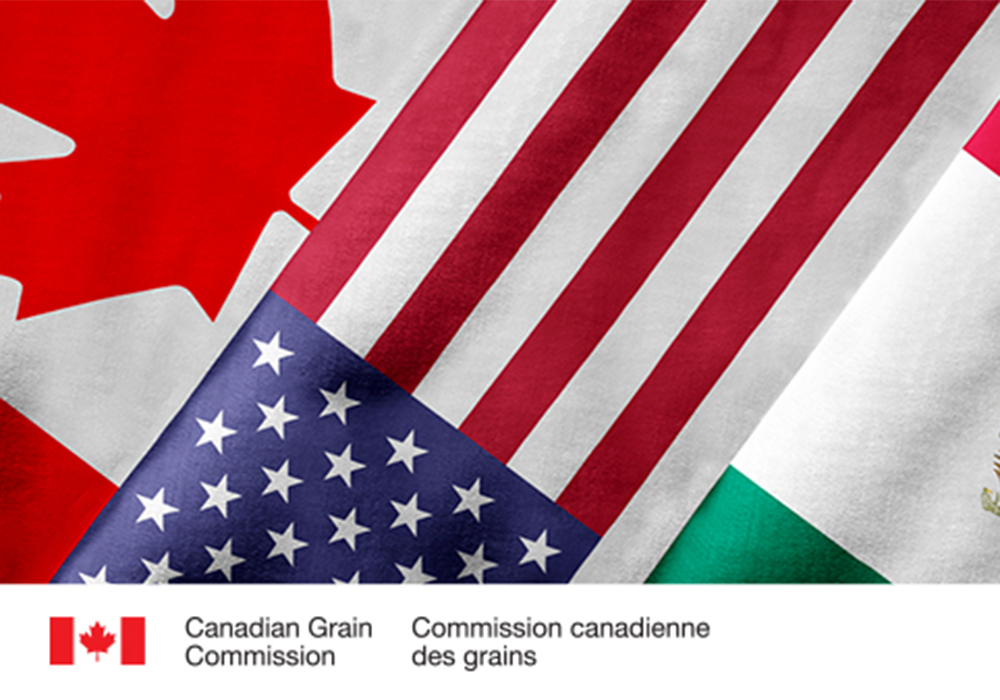American wheat growers will get equal treatment when it comes to grain grades as the new Canada-United States-Mexico Agreement takes effect July 1.
Canadian Grain Commission spokesperson Remi Gosselin said amendments to the Canada Grain Act were passed as part of legislation to implement CUSMA.
Among them was allowing wheat grown in the U.S. to receive a statutory grade if it is a registered variety.
Other changes remove the requirement for country-of-origin statements on U.S. wheat quality certificates but adds requirements for eligibility declarations by anyone selling grain to a licensed grain dealer.
Read Also

Farming Smarter receives financial boost from Alberta government for potato research
Farming Smarter near Lethbridge got a boost to its research equipment, thanks to the Alberta government’s increase in funding for research associations.
Western Canadian Wheat Growers Association president Daryl Fransoo said the organization has pushed for these changes for years, advocating for appropriate grain grading of American wheat coming into Canada.
Gosselin said Canadian producers won’t see any differences as a result of the amendments.
“I think that it’s more about dealing with long standing trade irritants,” he said. “U.S. producers were concerned they weren’t being provided equal treatment.”
He said it won’t affect grain handlers given that there aren’t many deliveries from the U.S. into Canada compared to the other way around.
“It’s more a function of economics than any piece of legislation,” he explained, referring to currency value. “It’s not advantageous to be paid in Canadian dollars at this point.”
Fransoo said Canada is a net exporter of wheat while the U.S. is a net importer.
#CUSMA takes effect on July 1. Changes are coming that will protect Canada’s quality assurance system & ensure U.S.-grown grain included in Canadian shipments meets the same high quality standards. More info on upcoming changes: https://t.co/pXRYdZgpDW #CdnAg pic.twitter.com/AZx0T1G6Oh
— Grain Commission (@Grain_Canada) June 22, 2020
“Without these changes, Canadian grain farmers would be put at risk of losing the correct grading for their grain or potential access to open border trade with our biggest trading partner,” he said. “This is a win-win for everyone.”
While western Canadians are familiar with the now-mandatory eligibility declarations, the process is new in the east. As such, there will be a one-year phase-in period in that part of the country.
“It will be mandatory for anyone to complete a declaration of eligibility once a year per facility where a producer is delivering grain,” Gosselin said.
The declaration is part of Canada’s quality assurance process to protect grades and payments, Gosselin said.
He added the declaration comes instead of something more costly and inefficient such as genetic testing.
“The onus is on the person delivering the grain attesting to the fact the variety being delivered is registered in Canada,” he said.
The Canadian Food Inspection Agency maintains the list of varieties that are eligible.


















